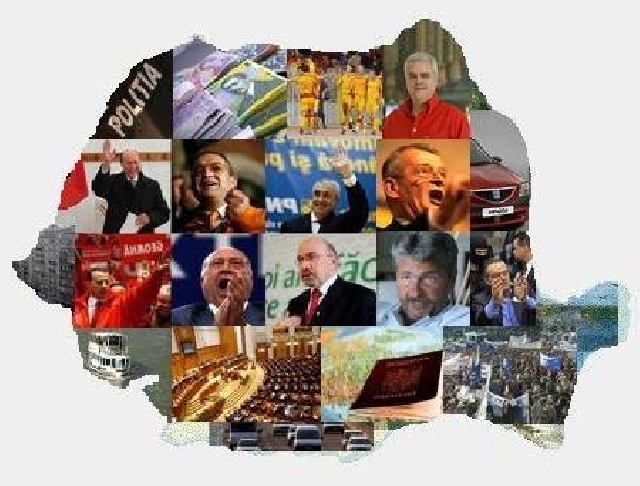The Week in Review, March 30 – April 4
A roundup of the week's main stories.

Mihai Pelin, 05.04.2014, 14:03
A 7 eurocents excise duty on fuel has sparked heated debates in Romania.
The controversial excise duty of 7 Eurocents per litre of fuel is applied in Romania as of April the 1st, working out to an average 0.4 lei increase per litre of gasoline, diesel oil and kerosene. Road carriers will however be refunded 4 of the 5 Eurocents, says Prime Minister Victor Ponta. The measure includes freight and passenger transporters as well as the Romanian Post Company. The amounts of money are to be returned quarterly, based on the bills attesting the volume of purchased fuel. Railway transporters are however discontent with the measure, as they contest the excise duty on fuels, which they consider discriminatory. In turn, Romania’s President Traian Basescu says the duty is abusive and extremely detrimental to a large part of the business sector and the population. In exchange, the head of the IMF Mission to Romania, Andrea Schaechter, says the economic program agreed upon with the Romanian authorities is on the right path.
Prices for natural gas and cigarettes have gone up this week
As of early April, the prices of natural gas and cigarettes have increased, too. According to the timetable for the elimination of regulated prices, the price of natural gas increased by 2% for home users and by 5% for industrial consumers. Smokers will pay more for cigarettes, as they will have to take 0.5 lei more from their pockets for a package of cigarettes. According to experts, such a measure will impact mostly smokers of cheap cigarettes, as their prices will go up, close to that of premium cigarettes. In exchange, we will pay less for mobile phone bills, because interconnecting fees will be reduced considerably, and thus phone calls in another network will be cheaper. The new fees are mandatory for all 46 fixed network providers and 6 mobile network providers in Romania. Another piece of good news is that Bucharest authorities do not intend to increase electricity prices. Analysts say prices in this sector should decrease, as a result of the competition between suppliers.
The Central Election Bureau has made public the list of valid candidacies for the European parliamentary elections of May
The Central Electoral Bureau rejected the registration applications of several candidacies for the European Parliament elections due on May 25th, which were submitted by parties and independent candidates. The most drastic decision targets the nationalist, populist and extra-parliamentary Greater Romania Party, the Central Electoral rejecting the lists submitted by both Corneliu Vadim Tudor and Gheorghe Funar, the leaders of the two factions in the Greater Romania Party fighting for the party presidency. Among the invalidated candidacies is also that of independent candidate, actor Mircea Diaconu. The lists of candidates submitted by the parliamentary parties, in power or in opposition, were admitted by the Central Electoral Bureau. Of the non-parliamentary parties whose lists have been accepted we can mention the pro-presidential parties the People’s Movement and the Civic Force and also the Christian Democratic National Peasant Party. Among those admitted there is also independent candidate Corina Ungureanu, a former gymnastics champion of Romania.
Romania marks 10 years of NATO membership in a solemn parliamentary session
The Romanian Parliament met Tuesday in a solemn session devoted to the anniversary of 10 years since Romania joined NATO. The event was attended by President Traian Basescu and the former presidents of Romania, Ion Iliescu and Emil Constantinescu. Throughout the 10 years of NATO membership as many as 40 thousand Romanian soldiers were involved in peacekeeping missions in the western Balkans, Afghanistan, Iraq and Northern Africa. 26 of them died in action and 140 have been wounded. On March 29th, 2004 Bucharest authorities submitted the instruments for NATO accession ratification at the US Department of State headquarters, the US being the depositary of the North Atlantic Treaty. On April 2nd 2004 a ceremony was held when the Romanian flag was flown on top of the NATO headquarters in Brussels.
NATO has cut all military and civilian ties with Moscow
NATO has decided to suspend all military and civilian cooperation with the Russian Federation following that country’s armed intervention in Ukraine. NATO argues Moscow has violated the sovereignty and territorial integrity of the former Soviet republic, adding it would review relations with Russia at the forthcoming meeting of EU Foreign Ministers in June. NATO Secretary General Anders Fogh Rasmussen has criticized Russia for “violating every principle and international commitment it has made, first and foremost, the commitment not to invade other countries”. In order to de-escalate the situation, Russia announced it would “progressively withdraw” its troops massed on the Ukrainian border. De facto though Russian pressure on Kiev is rising. Russian energy giant Gazprom has increased the price for gas reserves supplied to Ukraine, a country that has an outstanding debt of 2 billion dollars, Gazprom officials have said. The EU and the US have condemned the use of energy as “a political weapon or instrument of aggression”, warning Russia there will be economic consequences to its policy of destabilizing Ukraine.




























